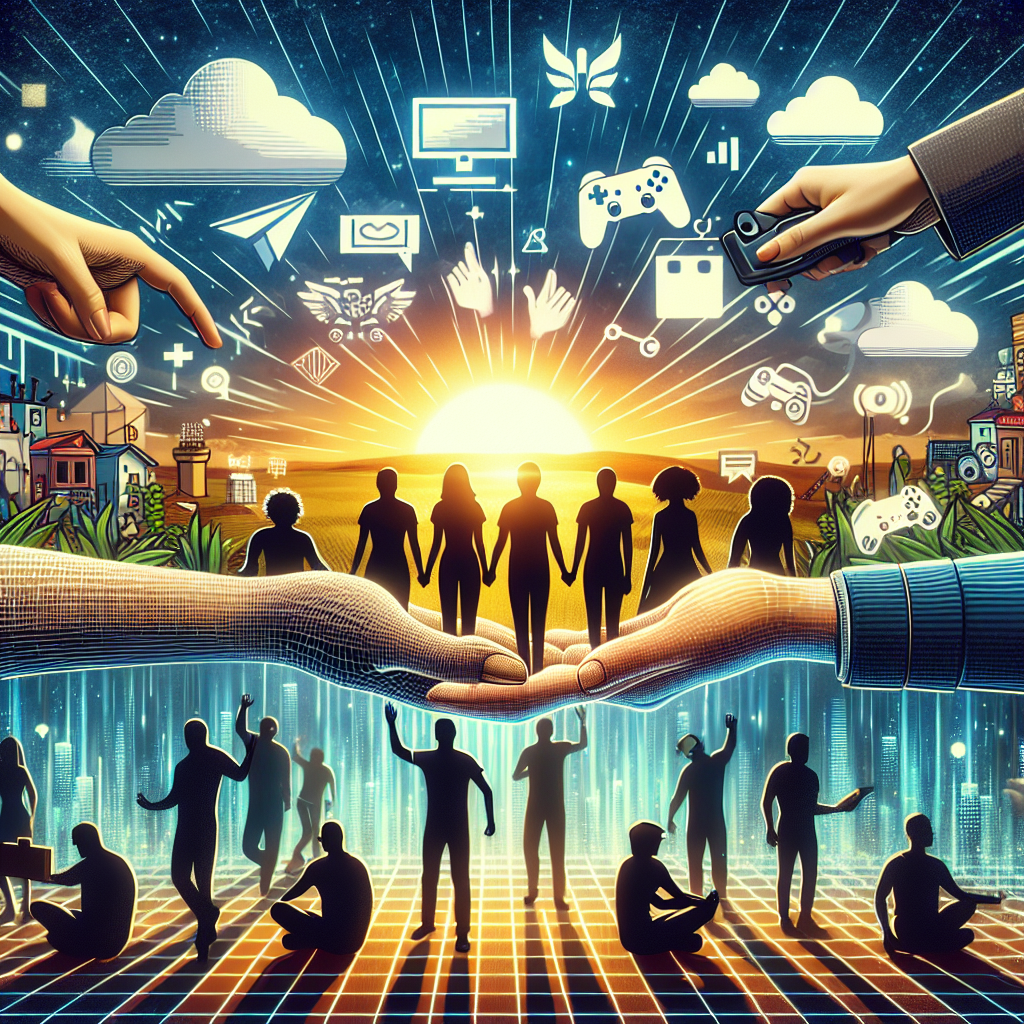Mental Health and Wellbeing: The Importance of Supportive Gaming Communities in 2025
As we venture further into the digital age, the realms of virtual interaction and entertainment continue to evolve, significantly impacting our collective mental health and wellbeing. By 2025, gaming communities have matured not only in terms of technology but also in their understanding of mental health issues. Supportive gaming communities now play an essential role in creating safe spaces for players to connect, share experiences, and manage their mental health challenges.
The Rise of Mental Health Awareness in Gaming
Interest in mental health awareness has surged over the last several years, and gaming has begun to reflect this societal shift. Game developers and community leaders alike have recognized their potential for incorporating mental health narratives and resources into their platforms. In this new landscape, gaming is not only a means of entertainment but also a medium for education and advocacy.
In 2025, many popular games now feature characters and storylines that address mental health issues, allowing players to see themselves reflected in their virtual worlds. These narratives help to destigmatize discussions around mental health, promoting empathy and understanding among players. By normalizing topics like anxiety, depression, and loneliness within gaming stories, communities foster a sense of belonging and understanding that can be crucial for individuals facing these struggles.
The Role of Supportive Communities
Supportive gaming communities have transcended their traditional role as online gathering places for players. They are now proactive in promoting mental health and wellbeing. Various platforms have established guidelines that encourage kindness, respect, and inclusivity, making it easier for players to share personal experiences without fear of judgment.
-
Safe Spaces for Conversations: Many communities today host moderated discussions centered around mental health. In these safe spaces, gamers can voice their struggles, seek advice, and offer support to one another. Such dialogues often encourage individuals to seek professional help while also providing valuable coping strategies that can lead to long-term wellness.
-
Peer Support Networks: With the advent of gaming as a universal language, players can easily find peers who resonate with their experiences. Initiatives that connect individuals facing similar challenges—be it grief, anxiety, or social isolation—have flourished. Peer support networks in gaming allow players to build authentic connections and foster camaraderie, creating an environment where no one feels alone.
- Integration of Mental Health Tools: By 2025, numerous gaming platforms have incorporated mental health resources directly into their interfaces. This includes access to therapy services, crisis hotlines, and self-help tools that can be utilized without leaving the gaming environment. Gamers who might be hesitant to seek help in traditional settings often find these in-game resources more approachable.
Advocacy and Education
In an era where misinformation about mental health can spread rapidly, gaming communities have taken an active role in advocating for mental health education. Many gaming events and conventions feature sessions specifically focused on mental health, led by professionals who engage with players on the subject. These educational initiatives aim to bridge the gap between recreational gaming and mental health literacy, empowering gamers with knowledge on recognizing signs of struggle, self-care, and available resources.
The Future: Challenges and Opportunities
As we move forward, there are challenges to address within the gaming community. Toxic behavior and harassment can still plague online gaming spaces, affecting the mental wellbeing of participants. To combat this, community leaders and developers must continue to advocate for responsible behavior through strict moderation, reporting tools, and educational resources on the impact of negative interactions.
Moreover, as gaming technology evolves, such as advancements in virtual reality (VR) and augmented reality (AR), there are opportunities to create even more immersive and healing environments. Initiatives that focus on mindfulness and therapeutic gaming experiences could serve as powerful tools for individuals seeking solace from their daily struggles.
Conclusion
The evolution of gaming communities into supportive environments has had a profound effect on mental health and wellbeing. By 2025, these communities have become vital resources for connection, education, and advocacy. As players continue to navigate their mental health journeys, it is crucial for the gaming industry and its communities to foster inclusive, empathetic spaces where every gamer can thrive. The power of supportive gaming communities lies not only in their ability to entertain but also in their capability to heal and uplift individuals, reminding us that in every virtual world, there is always room for compassion and understanding.




